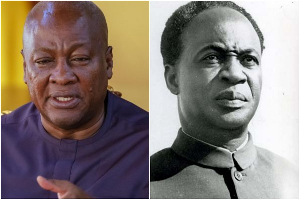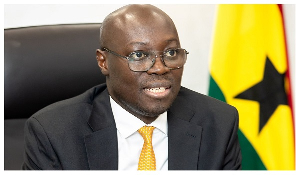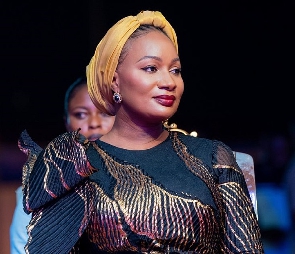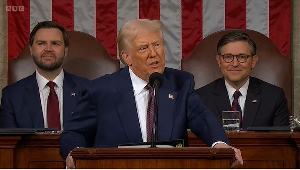DEVELOPMENT POLICY THAT WORKS: TOWARDS A MIDDLE CLASS DEVELOPMENT STRATEGY IN GHANA.
The Ghanaian government’s long-range plan to achieve middle-income status by 2020 is a laudable vision, but presents a set of challenges to the government planners, decision makers, and politicians. At today's levels, the lower ranks of the middle-income countries would require a per capita income of at least $725. However, despite its ambitious Economic Recovery Program in place since 1983, Ghana’s annual GDP growth rate in 2006 was 6%, the GDP per capita was 527, and the incidence of poverty declined by only 5% between 1988 and 1992. The IMF estimates that Ghana’s GDP growth will increase from 6% in 2006 to an average of 6.3 per year from 2007 to 2010. But to attain a middle-income status and to ensure greater participation of its citizens in political and economic decisions, the country must improve its economic performance to about 8% annually. To accomplish this, the government of Ghana must redouble its efforts at increasing incomes and employment levels, as well as improving public health, and the educational status of all Ghanaians. Ghanaians must also acquire a greater stake in the economic and political development of their country, to ensure the benefits of growth are sustainable in the long run. The role of the government in this effort is to define and provide an effective legal, economic and social framework for the envisioned middle income society. The public and the private sectors need to brainstorm cooperatively on where government can best play a role, and in which areas are left to the private sector. The intent of this article is to provide conceptual and workable guidelines to help achieve our vision of becoming a middle income country in 2006.
The role of the middle class in development or political economics is gaining more acceptance among development theorists and practitioners. Many development experts maintain that the goal of development should not only be steady economic growth, but also creating a robust middle class. Recent scholarship on middle-class development strategies shows the middle classes were the driving forces in the economic development of Western Europe and United States. The GI bill of Rights – officially called the Servicemen’s Readjustment Act of 1944 in United States opened the possibility of middle class lives to millions of soldiers after the Second World War. This allowed people who were renters to become home owners, educated citizens, and independent property owner. This bill offered 16 million veteran’s government subsidized loans, unemployment benefits, and technical training. To focus on the middle class in Ghana is to focus on prosperity for many Ghanaians.
The middle class is generally the social stratum that is internally diverse, both economically and politically. It usually consists of employees of the state-financed institutions, middle management, and owners of small manufacturing industries, as well as the intellectuals, and politicians. This group is neither wealthy nor poor, at neither the top nor the bottom of the social hierarchy, but it forms the economic and political bedrock of any modern state. In Ghana, the middle class consists of small-time executives, businesswomen, teachers, government bureaucrats, senior police and army officers, professionals, as well as technical and managerial personnel.
Intellectuals have studied the place of the middle-class in political economics for more than 2000 years. Aristotle in his, “Politics,” defines three classes of the citizen body-the very rich, the very poor, and the middle class. He considers the middle class the most moderate of the classes. He observes that those who belong to either extreme find it hard to follow the lead of reason. He concludes the best form of political society is one where power is vested in the middle class, and that good governments are attainable in those states where there are a larger middle classes.
One reason for the failure of many democracies is that societies tend to polarize the rich and the poor. The results is that either the rich exploits the poor through oligarchy (government by a small group of people), or the poor overthrows the rich and redistributes income and property, plunging nation-states into social and political disorder. All coup-makers in Ghana (NLC, NRC, and PNDC) have justified their interventions by claiming to be liberators, redeemers, and defenders of the poor, only to turn around and exploit the same people they professed to liberate, redeem, and defend. We need to close the poverty gap to deny them of these flimsy excuses. A middle class development strategy is an attempt to lift the poor into the middle class, thereby creating a buffer between the very rich and the very poor.
Further, a middle class development strategy will create effective demand for goods and services, as robust middle class will lead to a strong domestic market. This in turn will result in increased production and productivity, which will help local firms enjoy economies of scales. Strong domestic demand is key to economic expansion. China’s economic success is partly due to its burgeoning middle-class. The creation of a middle class is not only about sufficient disposable income, but also about the education levels and the purchasing habits and attitudes that result from it. The middle-class ensures higher levels of income, growth, and public goods.
The existence of a middle-class affects economic policy. A country with a middle-class will prefer policies that promote growth, while one polarized by class or income inequalities will choose redistributive policies. Fairly homogenous middle class societies have greater income and growth, because they have more human capital, better infrastructure, better national economic policies, stronger democracy, greater political stability, and more modern social structures.
The question is: Can Ghana create conditions necessary for the emergence of a middle- class as a development strategy? The middle classes in today’s advanced Western economies were built on employment, education, and property rights. The Western countries made deliberate attempts to encourage high levels of productive investment by households in small farms and businesses. The governments in these countries encouraged and assisted their citizens to invest in their own, and in their children’s education and training.
Creating conditions for a dynamic middle class in Ghana will demand better banking, better schools, rule of law, contract enforcement, and a labor market organized around collective bargaining. The fundamental prerequisite for employment, education, and property ownership is a strong financial system that provides incentives for the development of consumer credit for the purchase of domestically produced goods and services. Credit-financed consumption is more critical to economies today than ever before. It is the exuberant shoppers of the United States and Europe who use their credit cards to keep the global economy afloat. Contrary to the IMF and World Bank economic prescriptions that require the government to reduce its spending, development policy that works requires a large infusion of capital by the government. Kuznets (1977) in “Economic Growth and Structures in the Republic of Korea highlights four variables – high investment rates, labor market competition, export orientation, and a strong interventionist government. Recent literature on development economics also emphasizes the significance of the state and the potential benefits of government-led development.
The need to reform our educational system to make it work in this technologically changing global environment can’t be overemphasized. To possess education and training that command high wages, the worker must be able to think, solve problems, and learn how to apply skills in new contexts. Success in today's diverse, global and technologically sophisticated business environment requires results-oriented education that extends beyond theories and conceptual understanding to practical application. We need educational system that integrate schooling and training and treats the two as an indivisible whole. This kind of educational system allows students to participate in school- to- work programs and gain experience and on-the-job training at the same time. The result is that graduates can forge meaningful and durable connections between the world of work and the world of school. The German education system, fashion along these lines, has served the German people very well. The German auto engineer or mechanic is good at both theory and practice. No wonder the German auto engineer is in a class by itself!
Further, Ghanaians need an education system that addresses the problem of moral decadence in our society. Plato observes in his “Republic” that “good education and upbringing, when they are preserved, produce good citizens, and useful citizens, who are in turn well educated, grow up even better than their predecessors.” He warns those in charge to cling to education and see that it is not corrupted without their noticing. Our economic problems are inseparably linked to the moral decadence of our politicians, civil servants, and the workers.
Private ownership and property rights are very critical to formulating and implementing a middle-class development strategy. Institutional and legal frameworks that promote and secure property rights and enforce contracts have a significant impact on the poor. They enable individuals with little property and no political connection to register whatever they own, improve their financial standing, and invest in small enterprises. Studies from both primary and secondary sources suggest two things. First, the poor can save and accumulate assets. And second, assets have positive social, psychological, and civic effects independent of income. The idea that the poor should accumulate assets is now accepted and supported by many studies (Sherraden 1991, Scanlon and Page Adams). Japan, Taiwan, and South Korea are classic cases of successful land reforms. The governments and the tenants bought land from the land owners, or in some cases the government acquired and sold them to tenants at a discount, and paid the landowners in bonds. The availability of land to the tenants was considered as an important component of development strategy.
Property registration and titling is important in our efforts to encourage a majority of Ghanaians to build assets. The Peruvian economist Hernando de Soto in his book the “The Mystery of Capital, “ argues that people are not poor just because they do not own assets, but rather, they are poor because they do not have the legal titles to what they own. Because they do not have legal titles to their possessions, they cannot use them as collateral to raise capital for investment. He maintains that in a typical African country like Ghana, only one person in ten lives in a formally owned house, and only one worker in ten holds a formal job. The remaining nine-tenths are ignored in our national income accounting system. He estimates the total fixed property held by people in the informal sectors in developing countries and former communist countries is about 9.3 trillion US dollars.
However, despite the great benefits of property registration and titling to economic development, property registration procedures in Ghana are so cumbersome that the World Development Report 2000 remarks: “In Ghana in 1993 an investor had to obtain 24 administrative approvals for 24 services before starting any activity—around two years of procedural approval, with an uncertain outcome.” This accurate but sad commentary discourages prospective investors, and undermines Ghanaian government’s attempts to attract them.
We need to reform our land administration policies and procedures to remove the legal and administrative bottlenecks that impede land registration and titling. It is generally accepted that nations with more secure property rights and effective contract enforcement tend to do better economically than those with insecure and fragmented land administration systems (North, 1991; Knack and Keefer, 1995). Also, Timothy Besley of London School of Economics, in his landmark study “Property Rights and Investment Incentive: Theory and Evidence from Ghana,” finds a significant link between property rights and investment in Ghana. The Ghanaian government has realized the problem the fragmented land tenure system poses to the nation’s economic development, and is working to rectify the situation. In July 2003, the World Bank’s Board of Directors approved an IDA credit of US$20.51 million to help the government of Ghana reform land administration practices.
The role of civil societies in this endeavor can’t be overemphasized. We need to establish viable civil societies as watch dogs to all public institutions. We need to encourage more citizen participation in government, since apathy and ennui towards politics and active political participation can undermine democracy. Our democracy must encourage citizens to form private organizations and rally themselves in clubs, sports leagues, and other such groupings. A strong civil society promotes government efficiency and responsiveness. In his landmark study about civil society, “Making Democracy Work: Civic Traditions in Modern Italy,” Robert Putnam observes, “Feeble and corrupt government, operating against the background of weak and uncivic society, tend not to foster the creation of wealth, but rather to renew poverty.”
Ghana can move forward, taking advantage of the knowledge and technology revolution to improve its economic growth prospects, and works to move more people from poverty into a large and growing middle-class. We need to meet the growing social, political, and economic challenges of the 21st century by making major changes in our development strategies, in order to improve and create new institutions and infrastructures critical to harnessing the knowledge revolution. We need to update our economic and institutional infrastructures, including legal and financial frameworks to support investment and entrepreneurship by protecting financial assets and intellectual property. Finally, we need to redesign our educational instruction and curriculum to meet the ever-evolving knowledge needs of the new economy.



















